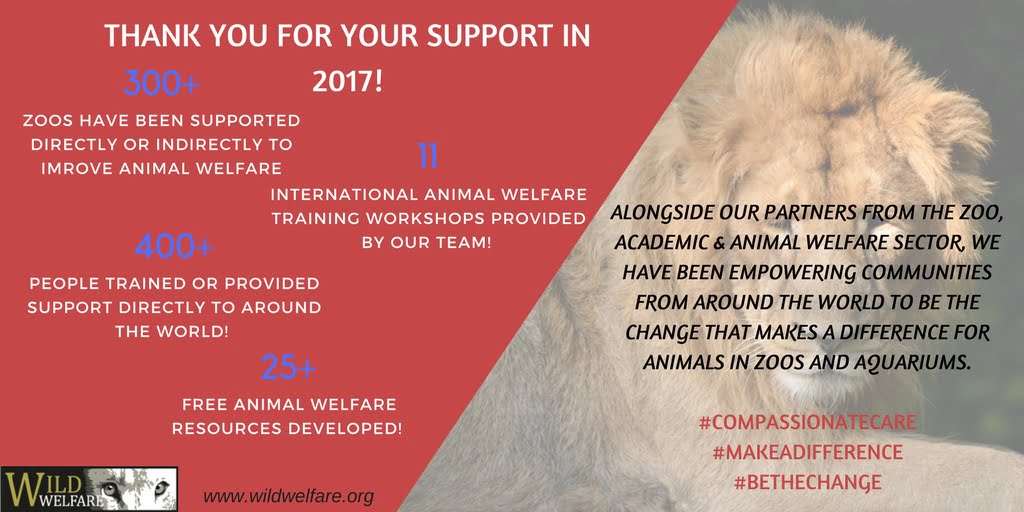Thank You For Your Support in 2017!
Thank you for your support in 2017! Whether it has been financial support, providing expert advice and resources or simply liking and sharing our work on Facebook – it all helps! We are a small team and without the public and professional support we receive, we would not be able to carry out all the work we have done.
Special thanks must go to those from the zoo and animal welfare global community who give up their own spare time to work with us. Whether it’s providing specific animal welfare training or volunteering your professional services, we are incredibly grateful.
This year we have worked in more than seven different countries, with a wide network of individuals and organisations from within the zoo and aquarium community. Addressing cultural differences and their implications for animal welfare is never simple, but the one thing that we universally observed across all these different communities is the willingness to embrace and improve on animal welfare in captivity.
2017 was the year where we really felt there was a step-change in how animal welfare is both recognised and implemented in the wider zoo and aquarium community. From behavioural healthcare to addressing complicated and challenging concerns, such as the welfare and ethics of live feeding in zoos, a wide range of concepts have been discussed and we are starting to see them being addressed with tangible and positive results.

The challenge of improving captive wild animal welfare practices is vast and addressing captive wild animal welfare concerns is, and will remain complicated. Captive wild animal and zoological concerns are inherently linked to a vast majority of wild animal welfare issues.
From the illegal wild animal trade and wild animal capture to animal abuse for tourism, poor animal welfare in captivity can be associated with these practices, and as such, strategically working on addressing all related welfare concerns, will help contribute to the collaborative effort to end such practices.
The issue of wild animal abuse, illegal trading and practical zoo welfare issues cannot be resolved in the short-term, nor can we single-handedly end all wild animal welfare issues. Legislative bureaucracy, global captive welfare inertia and societal apathy is ongoing.
However, together we can make a real effort to improve the welfare for many wild animals around the world, and collectively help change minds, attitudes and practices.





